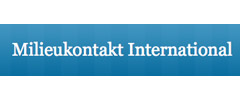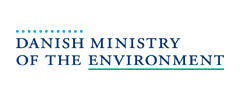WECF sends Policy Recommendations to EU on Environmental health and Lisbon strategy
Low dose effects of pollutants on the development of (unborn) children
18.12.2006 |Marie Kranendonk
WECF is asking for special attention for new research insights on low dose effects of pollutants on the development of (unborn) children. Current policies do not sufficiently take these serious and long term health risks into account. WECF points to the increase in environment-related diseases such as cancer, asthma and damage to brain development and the negative effects this has on public health goals as well as for the ambitions of the EU Lisbon Strategy.
The policy recommendations are the result of an Expert Workshop of international scientists convened to discuss emerging evidence (Apr. 13th –Brussels) and the International High Level Roundtable (Nov. 27th -Brussels) where representatives from the Commission, Member States, politicians, scientists, industries and NGOs discussed the new scientific findings and possible solutions in the context of the Lisbon aims (both organized by WECF).
For more information please see:
Position Paper with recommendations
Letter to EU Commission President Barroso
Factsheets on the Lisbon Agenda, the EU Sustainable development Strategy, Eco Efficiency, and the EBD
The International High Level Roundtable on Environmental Health and the Lisbon Agenda
International Scientific Expert workshop on the EBD
or contact
Marie Kranendonk, WECF President
marie.kranendonk@wecf.org +31 418 684450 or +31 6 535 569 41
Dutch Version
WECF heeft op 15 december een brief gestuurd aan de EU Commissie , de Milieu Raad, de Europarlementsleden en de Raad voor Gezondheid en Consumentenbescherming , over de noodzaak van een beter en meer samenhangend beleid om gezondheidsproblem terug te dringen , die samenhangen met mileuvervuiling . Bij deze brief was een meer gedetailleerde beleidsvisie gevoegd met aanbevelingen. WECF pleit daarin voor een veel grotere aandacht en prioriteit voor het voorkomen en terugdringen van milieugerelateerde gezondheidsproblemen en wijst op de noodzaak dit in samenhang te doen met de Lissabon Strategie . Het terugdringen van gezondheidsschade moet gebeuren door een preventief milieubeleid en het hanteren van het voorzorgsprincipe : dit is in het belang zowel van de volksgezondheid als de economie.
Nieuwe wetenschappelijke inzichten in de samenhang tussen milieufactoren en gezondheidseffecten maken een beter preventief beleid mogelijk. Met name de lange termijn invloed van prenatale blootstelling aan lage doses schadelijke stoffen op de gezondheid is tot nu toe sterk onderschat. Daar ligt een urgente noodzaak voor betere gezondheids bescherming.
De aanbevelingen zijn gebaseerd op de resultaten van een workshop van wetenschappelijke deskundigen over nieuwe inzichten in de Environmental Burden of Disease (EBD) op 23 April en de wetenschappelijke presentaties en discussie tijdens de High Level Round table op 27 November in Brussel, beide georganiseerd door WECF


































